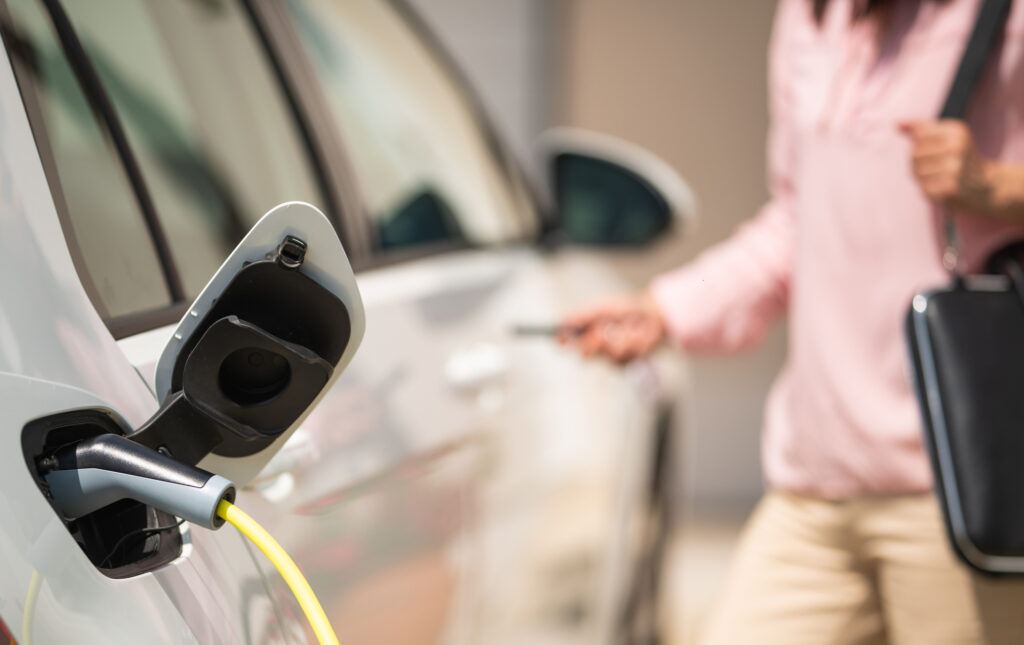The framework of the UK’s EV charging infrastructure is experiencing ongoing analysis alongside schemes set to help tackle the disconnect between chargepoint availability and accessibility.
Here are the three key stories from this week:
New partnership grants Bonnet customers access to 264 rapid chargers
The electric vehicle (EV) charging aggregator, Bonnet, has announced a new partnership with charging network MFG EV Power allowing its customers access to 264 fast 150kW connections through the Bonnet EV charging app.
Alongside the 51 ultra-rapid charging hubs across the UK which deliver access to the 264 connections, Bonnet customers will also automatically benefit from MFG EV Power’s growing network. This includes the 3,000+ ultra-rapid chargers with speeds ranging from 150kW to 300kW that the EV charging network plans to install throughout its 900 UK locations by 2030.
The charging hub sites also include amenities for long-distance drivers such as 24-hour hot food services.
This partnership brings Bonnet’s portfolio to 22 networks with more than 80,000 charging connections across the UK and Europe.
The Bonnet app, which shows real-time data on charger availability, also offers a number of extra benefits at an additional cost. The ‘Boost’ plan grants a 10% discount at all listed chargers for £2 a month, or else the ‘Turbo Boost’ scheme, costing £8 a month, gives customers a 15% discount for both on-street and motorway service chargers.
“We’re very excited to partner with MFG as they continue to expand their network across the UK, said Patrick Reich, CEO and cofounder of Bonnet.
“Our mission at Bonnet is to make charging your electric vehicle as easy as possible and our recent win of Driving Electric’s “Best Electric Car App” Award for 2023 shows this. We are constantly expanding our network and trying to make charging a great, simple experience.”
Workplace charging could entice 50% of new car buyers
A new YouGov survey has revealed that half of new car buyers would be more likely to consider purchasing an electric vehicle (EV) if they were able to charge at work.
The data, gathered on behalf of the designer and operator of Solar Car Parks (SCPs), 3ti, illustrates an opportunity for destination and workplace facilities to bolster EV uptake in the UK.
“It is fantastic to read recently that businesses are signing up to salary sacrifice schemes that help make EVs more affordable for their employees, but we see that as offering only half a solution,” says Tim Evans, 3ti’s founder and CEO.
“It is no surprise to learn that these survey results support 3ti’s belief that the best place to charge an EV is at a workplace or other destination, especially for those who cannot charge at home. Not everyone has access to a charge point at home, so destination charging could be a great leveller – democratising EV ownership and promoting mass uptake.”
To help incentivise the uptake of EVs in the UK 3ti suggested adopting France’s recent legislation which mandates all sites with over 80 parking spaces have to install solar panels and offer cheaper, renewable energy for EV drivers.
3ti also highlighted the benefits of integrating EV chargepoints and solar generation with an existing grid connection to offer neighbouring companies cheaper, reliable renewable energy.
Using its 10MWp of solar canopies installed across 2,500 UK parking spaces, as a case study, 3ti stated that each SCP parking space would be able to generate roughly 2.7MWh of solar energy per year.
The addition of a battery, the company continued, would allow excess energy to be fed back to the grid, meaning that lower carbon energy can be used from the grid at night.
Evans added: “Adopting a ‘charge where you stop’ mentality in place of a fashionable, expensive rapid or ultra-rapid charging model is crucial if the UK is to truly decarbonise its transport sector.”
Over half of UK workplaces do not offer EV charging
A recent YouGov survey commissioned by the electric vehicle (EV) charging platform Montana, showed that 52% of the EV drivers that took part do not have access to a chargepoint at their place of work.
The survey illustrated that there was a clear desire for workplace charging as 82% agreed that they would benefit from being able to charge their EVs at work.
There is a significant lack of available chargepoints at workplaces, according to the report; only 25% of EV drivers can charge their vehicle at work.
“There’s a huge gap between what EV drivers want and what is currently available in the UK. While workplaces are still being slow to install charge points, their employees are charging at expensive public chargers or waiting until they get home and plugging in at peak times. Both of which will become more untenable as energy prices and the demand on the grid increases” said Alok Dubey, UK country manager at Monta.
“Workplaces are a crucial charging solution to help build a stable and accessible charging infrastructure in the UK, and there are huge benefits for employers who install a charge point”.
UK Power Networks (UKPN) called for more investments in EV chargepoints nationwide in a recent announcement. Addressing the ongoing disconnect between the availability and accessibility of chargepoints, identified by Monta and UKPN could help tackle poor chargepoint experience and help incentivise the uptake of EVs in the UK.





